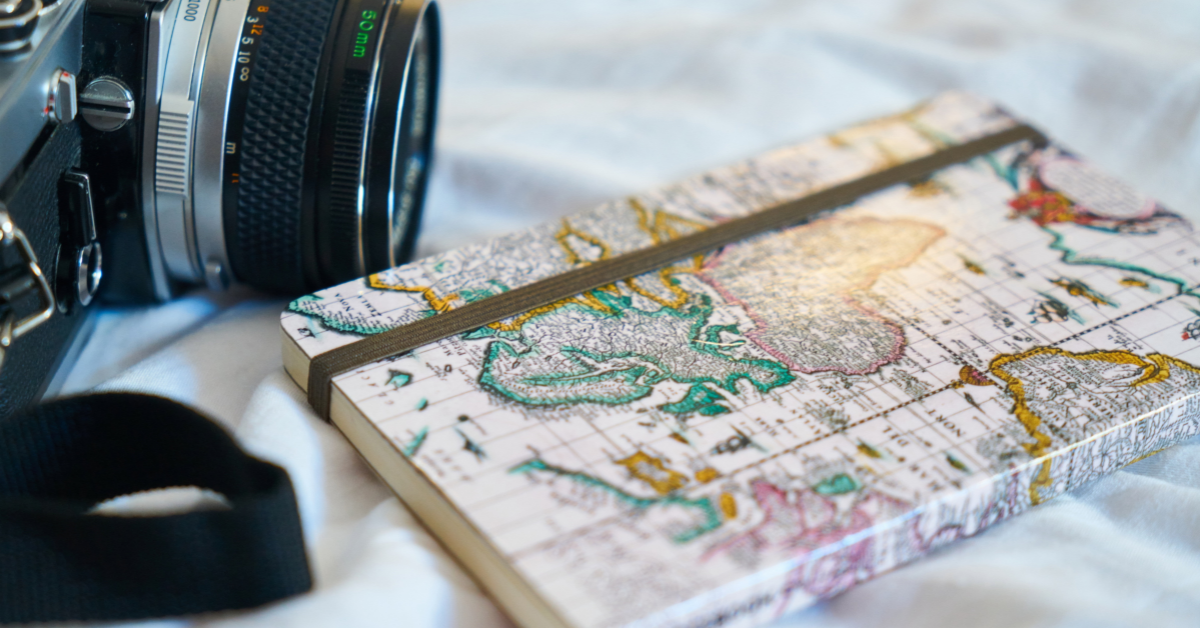
The Relationship Between Travel and Money

*Collaborative Post
The relationship between travel and money is complex. It encompasses a wide range of financial considerations, from the cost of transportation and accommodation to daily expenses while on the road. So, let’s see how money can influence your relationship with travel.
Dining and Food Costs
Dining and food expenses constitute a pivotal part of the travel experience, offering a window into the culture and flavors of a destination. The financial aspect of dining out during travel can be a delightful journey. Travelers are presented with a diverse range of culinary options, from exquisite restaurant dining that allows them to try local delicacies to more budget-friendly alternatives like street food stalls and markets.
The choice of dining style is a significant determinant of the overall travel budget. Exploring local cuisine is an integral part of the adventure. Still, it’s essential to balance culinary exploration and financial wisdom, ensuring that dining expenses align with the available budget.
Activities and Entertainment
Travel is about exploration and engagement. However, the activities and entertainment chosen come with their own price tags. Admission fees, guided tours, museums, slots for real money, entertainment tickets, or even playing a Sweet Bonanza slot after a long day of exploring all add to the total cost of the journey, shaping the overall travel experience and you can always relax and spin the gambling slots.
Travel Transportation Costs
Travel transportation costs encompass a broad spectrum of expenses that significantly impact the overall financial plan of a trip. The mode of transportation, distance, and timing of bookings all come into play when calculating these expenses. Air travel, often the quickest but potentially the costliest, requires thoughtful consideration of ticket prices and options.
For those who prefer overland travel, such as train or bus journeys, there may be cost savings, albeit with trade-offs in terms of travel time. Road trips, while offering flexibility, demand budgeting for fuel and maintenance. Careful planning and financial strategy are vital to ensure that transportation costs do not overshadow the joy of exploration.
Accommodation Expenses
A significant portion of a travel budget goes into finding a place to stay. Expenses for hotels, hostels, vacation rentals, and camping can significantly impact the overall cost of a trip. The type of accommodation selected often reflects both personal preferences and budget constraints.
Currency Exchange Challenges
International travel introduces the complexities of dealing with foreign currencies. Exchange rates and conversion fees can substantially affect a traveler’s budget, impacting everything from shopping to dining.
Travel Insurance Protection
Travel insurance, often overlooked, is a financial safety net. It safeguards against unforeseen events like trip cancellations, medical emergencies, or lost luggage. Though an extra expense, it can save travelers from substantial financial burdens during their trip.
Emergency Fund and Contingencies
Travel always carries risks, making it crucial to have a financial cushion for unexpected emergencies or contingencies. Unforeseen medical costs, travel delays, or changes to the itinerary can arise, and having an emergency fund is a prudent financial strategy.
Travel Budgeting
To maximize the travel experience, many travelers establish a budget. This entails estimating expenses for transportation, lodging, meals, and activities. A budget helps travelers stay within their financial limits, ensuring they get the most out of their journey without overspending.
Individual Travel Goals
Personal objectives often shape the relationship between travel and money. Some individuals prioritize travel, allocating a substantial portion of their income to fund their adventures. Others consider travel a luxury and save specifically for particular trips.
Payment Methods and Credit Card Use
Managing money during travel plays a critical role in the overall experience. Credit cards with travel rewards can offer benefits like airline miles or hotel discounts, but it’s essential to use them responsibly to avoid debt accumulation and high-interest payments.
Savings and Investment for Travel
Many travelers plan and save specifically for their trips. They may create a dedicated travel fund or invest in experiences they value. Saving for travel can be a motivating factor that encourages financial discipline and responsible money management.
Travel as an Investment
Some individuals view travel as an investment in personal growth and enrichment. They believe that the experiences, cultural exposure, and personal development gained from travel are worth the financial investment. This perspective can influence how travelers allocate their money.
Sustainability and Responsible Travel
An increasing number of travelers are considering the financial implications of sustainable and responsible travel. This involves making choices that support local communities, reduce environmental impact, and ensure that tourism benefits the destination economically. Such choices may influence travel spending decisions.
Post-Travel Financial Considerations
The financial relationship with travel doesn’t end when the trip is over. Travelers may return home with new expenses, such as credit card bills and souvenirs. Post-travel financial management, including settling debts and reflecting on the trip’s financial impact, is an important aspect of the relationship between travel and money.
Bottom Line
The relationship between travel and money is intricate and multifaceted. Traveling often involves making financial decisions and trade-offs, from choosing transportation and accommodation to deciding on dining and activities. The financial aspect of travel can be a source of both excitement and stress, depending on how travelers plan and manage their resources. Furthermore, travel has a significant economic impact, contributing to the growth of the tourism industry in destination countries and influencing the financial choices and priorities of individuals.
Travel is a personal and transformative experience, and understanding the financial aspects of it is crucial for both practical planning and the enjoyment of the journey. Ultimately, the relationship between travel and money is a reflection of individual values, priorities, and financial capacity.
*This is a collaborative post. For further information please refer to my disclosure page.




